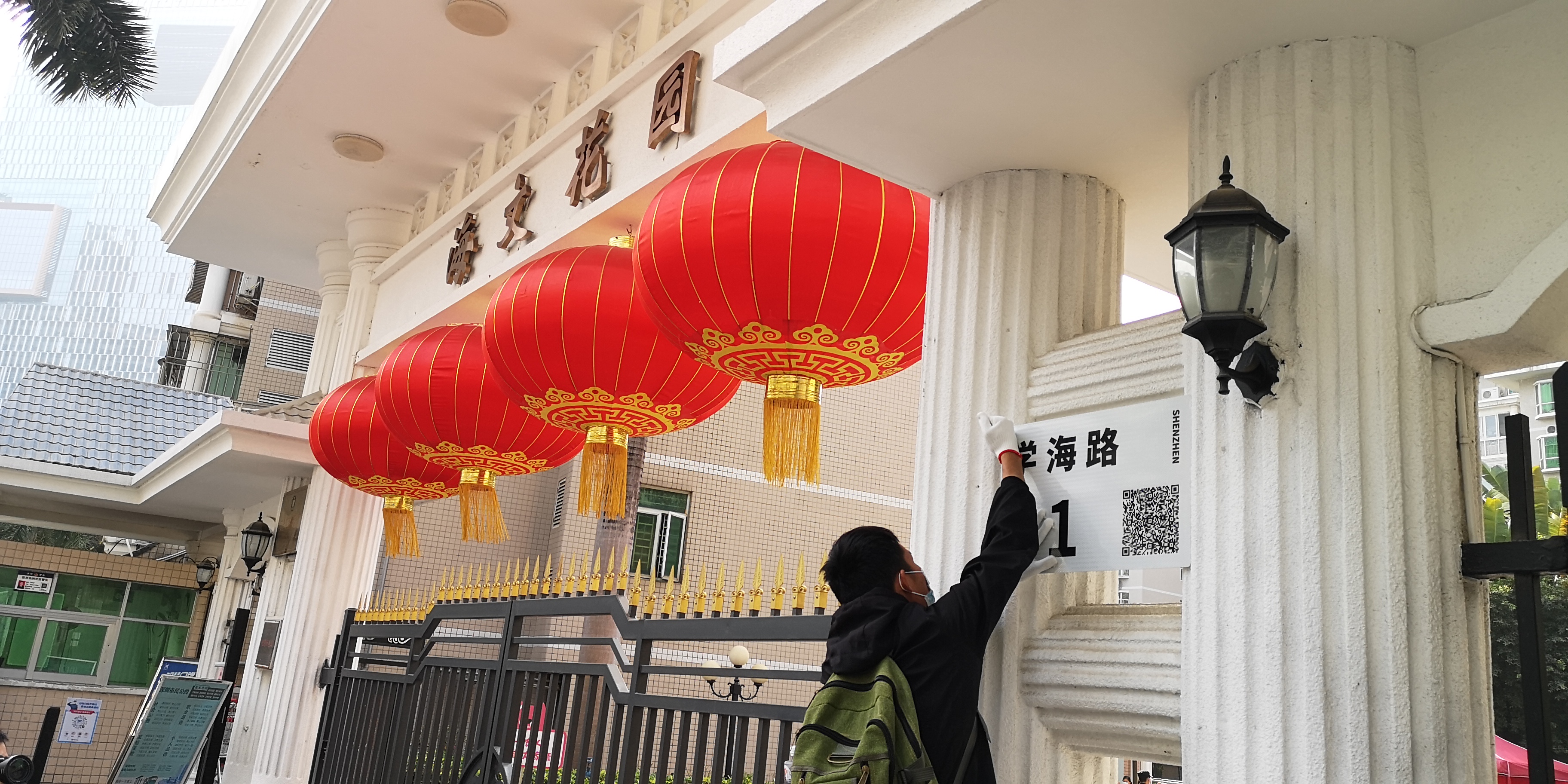City debuts first address plates with QR codes
Writer: Han Ximin | Editor: Holly Wang | From: Shenzhen Daily | Updated: 2021-01-28

The first address plate with a QR code was put up on a building at the Haiwen Garden housing estate in Nanshan District yesterday. Sun Yuchen
This means residents, enterprises and institutions can check the address and location of a building in the city in the future by scanning such a code on the building.
A staffer installs an address plate carrying a QR code onto a gate of the Haiwen Garden residential estate in Yuehai Subdistrict, Nanshan District, yesterday. Sun Yuchen
By scanning the QR code, visitors can directly access the building’s service platform, through which they can confirm the accurate address of the building, administrative jurisdiction and police information in the administrative area. They can also access the city’s administrative service platform on the “i深圳” app through the building code service platform.
A staffer posts the address plate of Block 2, 1 Xuewan Road which carries a QR code on the exterior wall of a residential building at the Haiwen Garden residential estate in Yuehai Subdistrict, Nanshan District, yesterday. sznews.com
“The adoption of the QR codes is a breakthrough in management of building signs. It not only provides the accurate address of the building and its nearby public services, but also offers an interface for police, market supervision, water, gas and electricity suppliers, and delivery companies to get access to the platform to offer precise and highly efficient services,” Zhang Zhe, an officer with the population management department of the Shenzhen Municipal Public Security Bureau, said yesterday.
The QR codes and the platform don’t contain any management data and personal information, so residents don’t need to worry about an information leak, according to Zhang.
The use of QR codes for buildings is part of the Smart City project and solves the problems of traditional physical building signs that contain insufficient or discrepant information, or that risk going missing or get damaged.
Police will start installing such address plates with QR codes at residential, office and business buildings. The district governments will bear the cost.